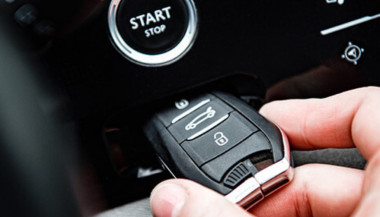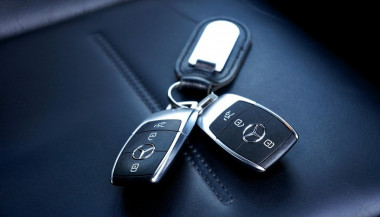Losing or breaking your car key can feel like a full-blown emergency. Whether your key won’t turn in the ignition, your remote suddenly stops responding, or you’ve misplaced the whole thing entirely, one thing is certain: you need a replacement—and fast.
While most people assume that replacing a car key requires a trip to the dealership and a hefty bill, that’s no longer the only option. In fact, depending on your situation and car model, you may be able to handle it yourself with minimal cost and effort. Here’s what you need to know.
Why Car Keys Are More Complicated Than You Think
Gone are the days when a spare key meant heading to your local hardware store and getting a basic metal key cut in minutes. Today’s car keys are advanced devices that often include transponder chips, remote locking systems, and built-in immobilizers. Some even come as proximity fobs that allow push-button starting without ever taking the key out of your pocket.
Because of this, replacing a lost or damaged key isn’t just about cutting a new blade—it often involves electronic programming and matching frequencies to your specific vehicle.
Dealer, Locksmith, or DIY? Your Replacement Options
When it comes to replacing a car key, you typically have three choices:
Dealership: Offers official replacements, but often at the highest cost.
Auto Locksmith: Generally more affordable and mobile, but availability varies.
DIY: Ideal for shell replacements, battery swaps, and some remote keys—if you already have a functioning spare key or understand your model's programming process.
If you’ve damaged your key shell or the battery has died, DIY is a surprisingly good option—especially if you’re comfortable working with small components.
The Rise of DIY: Save Time, Learn Something, and Avoid Dealer Fees
More and more drivers are discovering how easy it can be to fix their own car keys. Whether it’s replacing a worn key case, changing a battery, or even installing electronics into a new shell, DIY key repair is growing in popularity.
To support that trend, we’ve created a full library of free video tutorials showing how to disassemble and reassemble key fobs for dozens of car models—from BMW and Audi to Peugeot, Fiat, and Toyota. These easy-to-follow guides show exactly how to change a key battery, switch a shell, or upgrade to a new case in minutes.
👉 Check out the full tutorial playlist on our YouTube channel: Mr-Key DIY Tutorials
Step-by-Step: Replacing a Battery or Shell at Home
Let’s say your remote still works but the case is cracked or the buttons are worn down. In that case, replacing just the outer shell is often all you need to do. Here’s a quick look at what that might involve:
Carefully open the old key shell using a flat screwdriver.
Remove the internal electronics and transponder chip.
Insert them into your new replacement shell.
Reinstall the battery or replace it with a fresh one (typically a CR2032 or CR1620).
Snap everything together and test the key.
If you already have a functioning key and just want a backup, some car models even allow you to program a new key yourself. Always check your owner’s manual or look up on-board programming methods by vehicle brand.
Choosing the Right Key or Shell
Not all replacement keys are created equal. Here’s what to consider:
Chip Type: Most modern cars use a transponder chip (like ID46, PCF7946, etc.). Make sure your new key has the correct one.
Blade Profile: HU83, VA2, TOY43—these are just a few examples. Match your key blade exactly.
Frequency: Remote keys operate on specific frequencies (433MHz and 868MHz are most common in Europe).
You can find affordable, compatible replacement shells and key fobs at reputable online stores like mr-key.com.
When to Call a Pro
There are still some situations where professional help is the smarter option:
You’ve lost all copies of your key.
Your car requires encrypted key coding with dealer-only tools.
Your key has a broken or unresponsive transponder chip.
In those cases, a locksmith or dealership may be necessary.
Don’t Overpay—Just Be Prepared
Car key replacement doesn’t have to be expensive, stressful, or time-consuming. In many cases, you can replace the shell, battery, or even the entire fob yourself—especially with a little guidance. Our Mr-Key YouTube channel is here to walk you through it.
Whether you’re fixing a key today or preparing for the future, knowing your options puts you in control. And sometimes, the right tutorial is all it takes to save the day (and a lot of money).

 (1)_1744638022.jpg)
 (1)_1736340291.jpeg)


_1745478488.jpg)